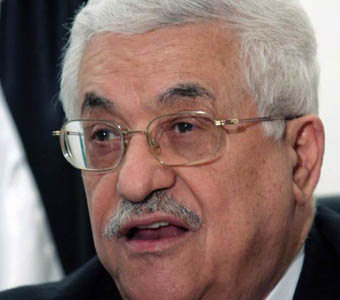Mahmoud Abbas: Peace deal with Israel unlikely this year
 Tel Aviv - Palestinian President Mahmoud Abbas said he doubted that any peace agreement could be reached by the end of 2008, saying in remarks published Friday that none of the six core issues in the conflict with Israel have been resolved.
Tel Aviv - Palestinian President Mahmoud Abbas said he doubted that any peace agreement could be reached by the end of 2008, saying in remarks published Friday that none of the six core issues in the conflict with Israel have been resolved.
"We presented our ideas and demands regarding the six issues but have not received any answer from the Israeli side," Abbas told the Israeli Ha'aretz newspaper on the 15th anniversary of the signing of the Oslo interim peace accords by late Israeli and Palestinian leaders Yitzhak Rabin and Yasser Arafat.
The accords granted autonomy to Palestinians in the West Bank and Gaza, enabling the creation of the Palestinian Authority, and called for a two-state solution to the conflict.
Abbas told Ha'aretz that Washington plays a central role in the peace process. Senior American officials are anxious to reach an agreement by the end of the year and are convinced this is possible, but the gaps between the parties remained wide.
He cited Israel's internal political disputes as the apparent reason for the lack of progress.
The core issues up for negotiation include borders, the Palestinian refugee problem, security and, perhaps the most sensitive one, Jerusalem.
Regarding the refugees, a highly emotional issue for the Palestinians, Abbas said: "We understand that if all 5 million refugees return to their homes, the state of Israel will be destroyed."
Nonetheless, he added, Israel must discuss both its responsibility for the refugee problem and a "practical right of return."
"Palestinians who do not return to Israel will be able to return to Palestine," he continued.
He also said a solution to the refugee problem would be based on the Arab peace initiative of 2002, which stated that the solution must be based on UN General Assembly Resolution 194, but would also be acceptable to Israel. The resolution states that all refugees wishing to return to their homes in peace should be allowed to do so at the earliest opportunity and compensation paid to others.
Abbas reiterated that he would not agree to an interim agreement such as a state with temporary borders. Any agreement must address all the components of the conflict, including Jerusalem, he stressed.
Israeli Prime Minister Ehud Olmert had said in June that he did not believe that an agreement that included a solution on the disputed city would be possible by the end of the year. Instead, he had pushed for an agreement that would solve other key issues while leaving Jerusalem open. The Palestinians rejected the offer.
US Consul General Jake Walles told a Palestinian daily Thursday that the parties had agreed to negotiations on the basis of the borders before the 1967 Arab-Israeli war and this included East Jerusalem.
Israel captured the West Bank and East Jerusalem from Jordan and the Gaza Strip from Egypt during the Six-Day War of that year.
An Israeli government official told Deutsche Presse-Agentur dpa that Israel was indeed willing to negotiate on Jerusalem but that the subject had not yet been debated in the now nine months of talks between the sides.
Reiterating the Palestinian demand that Jerusalem be included in the current talks, Abbas told Ha'aretz, "Nothing is agreed until everything is agreed." (dpa)